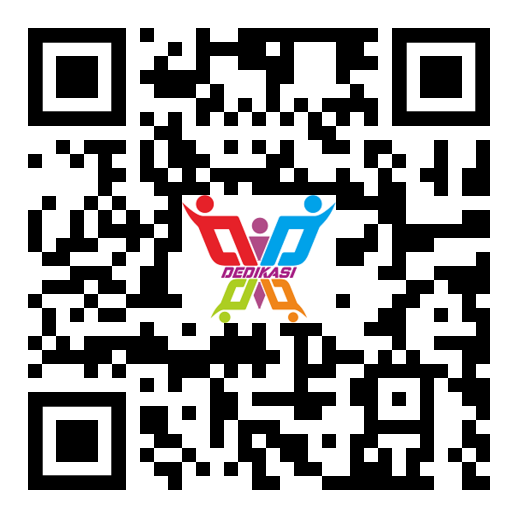Optimalisasi TPACK Melalui Insersi Video Pembelajaran Berbasis Pendidikan Anti Korupsi Pada Mata Pelajaran Sosiologi
Abstract
A teacher's ability to adapt to technology is tested when there is a significant change from face-to-face to distance learning. The most important thing is the teacher's effort to direct the attitudes and skills of students during online learning. The Technology, Pedagogy, Content Knowledge (TPACK) approach can be a solution to provide opportunities for educators to synergize anti-corruption education in learning practices. In this activity, anti-corruption education in sociology subjects was carried out using the TPACK framework approach. The service's target is the lecturers of sociology subjects in Surakarta. The method of implementing this service consists of several activities, including focus group discussion (FGD) offline to observe community needs. Then proceed with an online meeting through a zoom meeting to deliver general anti-corruption education materials and training asynchronously through the google classroom platform for 32 lessons for the benefit of training in anti-corruption education content analysis and anti-corruption learning model innovation. The preparation of anti-corruption education-based learning videos is carried out. The results of the activities were an increase in the ability of teachers to design anti-corruption learning innovations in sociology subjects and an increase in the ability of teachers to compile sociology learning videos by strengthening content knowledge of anti-corruption education insertions.
Keywords
Full Text:
PDFReferences
Archambault, L., & Crippen, K. (2009). Examining TPACK among K-12 online distance educators in the United States. Contemporary Issues in Technology and Teacher Education, 9(1), 71–88. https://doi.org/10.1080/0158791022000009213
Arif Mahya Fanny, Dian Kusmaharti, Via Yustitia, B. S. (2021). Manggali. Jurnal Pengabdian Dan Pemberdayaan Masyarakat, 1(2), 137–149. http://e-journal.ivet.ac.id/index.php/manggali
Atun, H., & Usta, E. (2019). The effects of programming education planned with TPACK framework on learning outcomes. Participatory Educational Research, 6(2), 26–36. https://doi.org/10.17275/per.19.10.6.2
Graham, C. R. (2011). Theoretical considerations for understanding technological pedagogical content knowledge (TPACK). Computers and Education, 57(3), 1953–1960. https://doi.org/10.1016/j.compedu.2011.04.010
Hodges, C., Moore, S., Lockee, B., Trust, T., & Bond, A. (2020). Remote Teaching and Online Learning. Educause Review, 1–15.
Koehler, M. J., & Mishra, P. (2006). Technological Pedagogical Content Knowledge: A Framework for Teacher Knowledge PUNYA MISHRA. Teachers College Record, 108(6), 1017–1054.
Kopp, M., Gröblinger, O., & Adams, S. (2019). Five Common Assumptions That Prevent Digital Transformation At Higher Education Institutions. INTED2019 Proceedings, 1(March), 1448–1457. https://doi.org/10.21125/inted.2019.0445
KPK RI. (2016). Integritas Untuk Umum.
Rahmadonna, S. (2020). Multimedia pembelajaran anti korupsi untuk menanamkan nilai kejujuran dan kesederhanaan pada siswa sekolah dasar di Yogyakarta. Epistema, 1(2), 86–93. https://doi.org/10.21831/ep.v1i2.34970
Richard T. Schaefer. (2012). Sociology A Brief Introduction 10th edition. McGraw-Hill Higher Education.
Sintawati, M., & Indriani, F. (2019). Pentingnya Technological Pedagogical Content Knowledge (TPACK) Guru di Era Revolusi Industri 4.0. Seminar Nasional Pagelaran Pendidikan Dasar Nasional (PPDN), 1(1), 417–422.
Syah, R. J., Nurjanah, S., & Andri Mayu, V. P. (2020). Tikio (TikTok App Educational Video) Based on the Character Education of Newton’s Laws Concepts Preferred to Learning for Generation Z. Pancaran Pendidikan, 9(4), 85–94. https://doi.org/10.25037/pancaran.v9i4.325
Utami, D. L., Wibowo, Y., & Rahayu, T. (2017). Penyusunan Media Pembelajaran Video Animasi Sistem Saraf untuk Meningkatkan Motivasi Belajar Siswa Kelas XI SMA Negeri 1 Kasihan Bantul. Jurnal Prodi Pendidikan Biologi, 6(2), 39–46. http://journal.student.uny.ac.id/ojs/ojs/index.php/pbio/article/view/6176/5885
Wisudo, B. dkk. (2019). Pendidikan Antikorupsi dalam Persepktif Pedagogi Kritis. Instrans Publishing.
Zhang, D., Zhou, L., Briggs, R. O., & Nunamaker, J. F. (2006). Instructional video in e-learning: Assessing the impact of interactive video on learning effectiveness. Information and Management, 43(1), 15–27. https://doi.org/10.1016/j.im.2005.01.004
DOI: https://doi.org/10.20961/dedikasi.v4i2.62372
Refbacks
- There are currently no refbacks.
|







3.png)



1.png)




